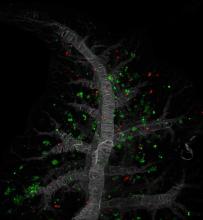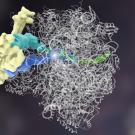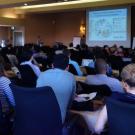News
Genetic Markers Provide Better Brain Cancer Classification
HDFCCC Members Co-lead authors of the study are Annette M. Molinaro, PhD and Kyle M. Walsh, PhD; UCSF co-senior authors are Margaret R. Wrensch, PhD and John K. Wiencke, PhD. A team of scientists from UC San Francisco and Mayo Clinic has shown that using just three molecular markers will help
UCSF Benioff Children's Hospitals Ranked Among Nation's Premier Hospitals
UCSF Benioff Children’s Hospitals, with campuses in San Francisco and Oakland, is among the nation's premier children’s hospitals in nine pediatric specialties, according to the 2015-2016 U.S. Best Children’s Hospitals rankings conducted by the U.S. News Media Group. UCSF Benioff Children's
Ashworth Receives Award from Cancer Nonprofit
UC San Francisco’s Alan Ashworth, PhD, has received an award from a cancer nonprofit organization for his “significant contributions to research, advocacy, clinical care, education, awareness, or support of hereditary cancer.” Ashworth, president of UCSF Helen Diller Family Comprehensive Cancer
The Resolution Revolution: Building a Better Microscope to See at the Atomic Level
One of the more famous images in biology is known as "Photo 51," an image of DNA that chemist Rosalind Franklin and Raymond Gosling created in 1952 by shooting X-rays through fibers of DNA and analyzing the patterns they left behind on film. X-ray diffraction image of the double helix structure of
Women with Dense Breasts May Not Need More Screening
As the debate continues to swirl around the medical significance of dense breasts and whether extra screening should be done, a new study led by UC San Francisco has found that women with dense breasts may need only routine mammograms unless they are at high risk. Q & A with lead author Karla
UCSF-Led Study Explains How Early Childhood Vaccination Reduces Leukemia Risk
A team led by UCSF researchers has discovered how a commonly administered vaccine protects against acute lymphoblastic leukemia (ALL), the most common type of childhood cancer. The Haemophilus influenzae Type b (Hib) vaccine not only prevents ear infections and meningitis caused by the Hib bacterium
The Diller Scientific Retreat: Building a Culture to Fight the Disease
In concept, it’s simple: Figure out how the cancer works, develop treatments that target the problem areas and cure the disease. In practice, of course, those working in the field know there is nothing simple about this lethal, at times heartbreaking contest of whack-a-mole. Tracking types, sub








